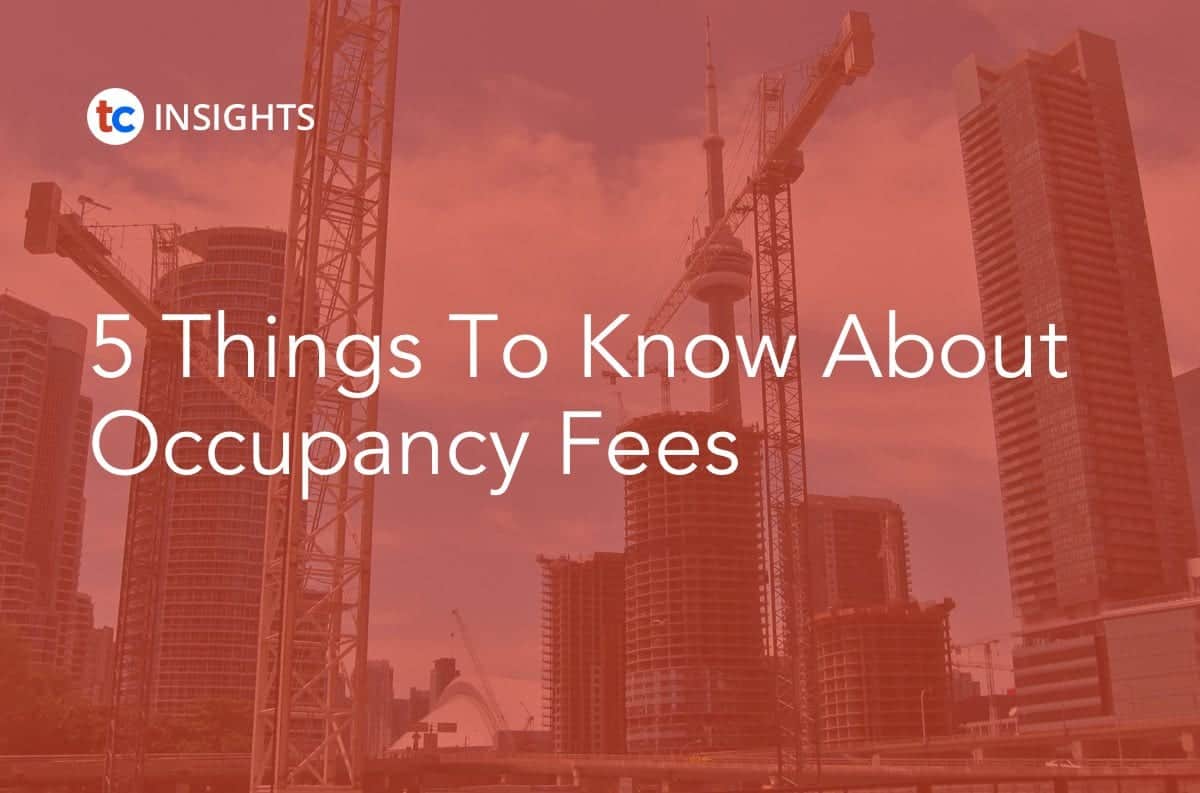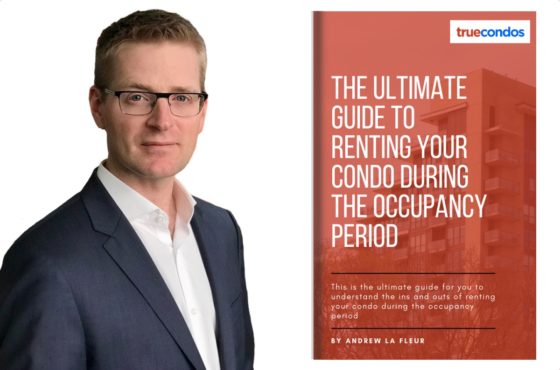5 Things to Know About Occupancy Fees
 I have a client who is in the middle of purchasing a new condo and we are currently in our 10-day rescission period. I am helping my client do their due diligence in reviewing their contract with a lawyer, making sure the financing is in place for the deposits as well as the mortgage, answering any questions that come up, and generally making sure they are totally comfortable before moving forward and finalizing the purchase.
I have a client who is in the middle of purchasing a new condo and we are currently in our 10-day rescission period. I am helping my client do their due diligence in reviewing their contract with a lawyer, making sure the financing is in place for the deposits as well as the mortgage, answering any questions that come up, and generally making sure they are totally comfortable before moving forward and finalizing the purchase.
In the course of our due diligence, this particular client had some concerns about occupancy fees or ‘phantom rent’ as it is also known.
Whenever you purchase a new condo, there is a period of time between when you take occupancy of your unit and when you take ownership of your unit. This is known as the ‘occupancy period’ or ‘interim occupancy’.
You can’t own something that doesn’t exist, and in real estate in Ontario, a property does not exist until it is entered into the Land Registry system (until it is ‘registered’). This process takes some time in a new condo because there are often hundreds of units to register at the same time.
Once your unit is ready and liveable, you take possession of it, but not ownership. You must pay the developer for the right to live in the unit (no free lunch). The amount of the occupancy fees is roughly equivalent to the interest on the amount outstanding on the purchase price. For example, a $300,000 condo with 25% down means you must pay monthly occupany fees roughly equal to interest payments on $225,000.
The occupany period ends when the building is registered, your mortgage kicks in, and you get the deed to your property.
So should you let the occupancy fees deter you from purchasing a new condo? Absolutely not!
Here are 5 things to know about occupancy fees:
1. Occupancy fees will have to be paid to the developer every time you purchase a new condo. It is normal and there is no way around it.
2. The occupancy period is normally 3-6 months, but the higher up you are in the building, the shorter the occupancy period will be. So if you buy a unit on the ground floor, you can expect a long occupancy period. If you buy the penthouse, you will likely have a very short occupancy period.
3. There is no way to say absolutely how long the occupancy period will be.
4. There is often a relationship between the length of the occupancy period and the experience level of the developer. The more experienced the developer, the shorter the occupancy period. Experienced developers who are familiar with process and who have diligent lawyers working behind the scenes for them know how to build and how to register a building as quickly as possible.
5. It is in the developer’s best interest to register the building as quickly as possible and to have the occupancy period as short as possible. This is because they don’t get their money from the banks until the building is registered and all the unit owners have their mortgages commence.
I always appreciate your feedback. Leave a comment or send me a private message via my contact form.
If you are looking to rent out your condo during the occupancy period, click here for our ultimate guide on everything you need to know.
Here’s a link to a Globe and Mail article on occupancy fees.



